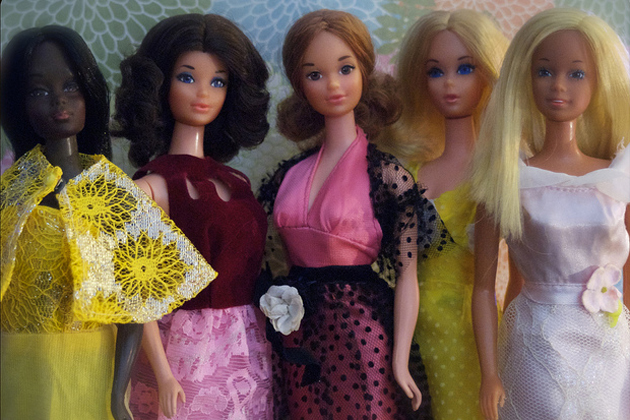
By Arlene Hosea
This past weekend, I saw a picture of a Black Barbie doll posted on someone’s Facebook page so I reposted without commentary. That post generated some feedback that eventually stirred something inside me. None of the comments were over the top like you see with anonymous blogs online, these individuals shared thoughts based on what we see, hear and experience in our society. The comments touched on several things from how parents would now say that this doll is too perfect and that this may give children unrealistic perceptions of what they should look like. Some asked where to buy the doll.Another person asked “why does she have straight hair?” While another commented on the darkness of Barbie’s skin and how it may confuse children given that Black skin color comes in many shades and asked if this Barbie had human, everyday issues women may have.
Bingo! Finally! Barbie is not human, she is a toy, and she is the figment of someone’s imagination. She has been molded to be a likeness of a multicultural society to be able to generate more revenue.
I played with dolls my entire childhood that did not look like me. I loved getting Barbie dolls. I loved washing her hair and then giving her hair the big chop! I understood that the dolls were not a reflection of me but a toy to keep me occupied. The women that influenced my life were strong Black women;some worked as domestic workers for wealthy families in town, used a wash board or a wringer washer, hung clothes to dry and ironed daily. They were the ones that cooked from scratch and used simple ingredients to make the best tasting meals. They were the ones that had tough lives, worked hard, saved and built something out of not much so that the next generation in their families could have more opportunity. They were mothers, spiritual advisers, counselors and disciplinarians. They reminded you every time that you fell that you could get up. They told you to get as much education as you could and that no one could ever take that from you. They were the ones that said “you are somebody!” Barbie never spoke to me, she never encouraged me; she only got me in trouble for cutting her hair off.
The women that I am a reflection of were not dolls; no toy maker could ever create a doll that could take their place. No doll could influence my sense of being like Irene, Frances, Hattie, Cartheda, Cleo, Annie and my mother Josephine.
Maybe we need to remind ourselves that our children need human role models and that toys, like Barbie are great for imaginary play and not a replacement for the real thing.
Arlene Hosea was born and raised in Bloomington. She retired from Illinois State University and is on the Board of Directors for Special Olympics Illinois. She has also served on the Town of Normal Human Relations Commission, The Baby Fold and the YWCA Board of Directors. Arlene resides in Normal.
The opinions expressed within WJBC’s Forum are solely those of the Forum’s author, and are not necessarily those of WJBC or Cumulus Media, Inc.






